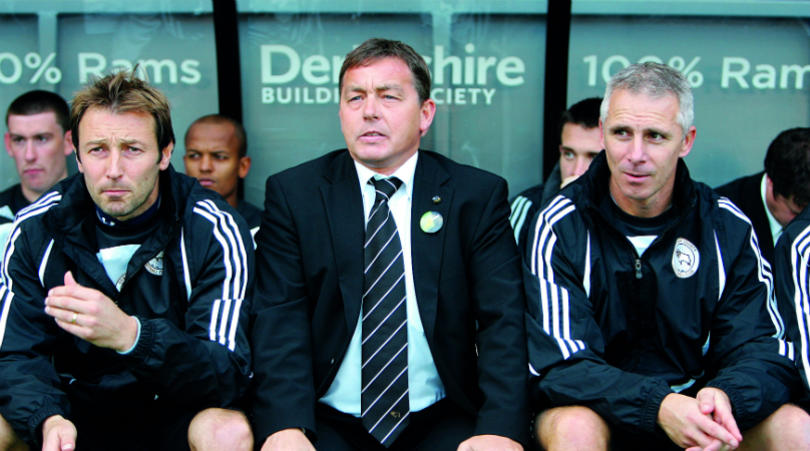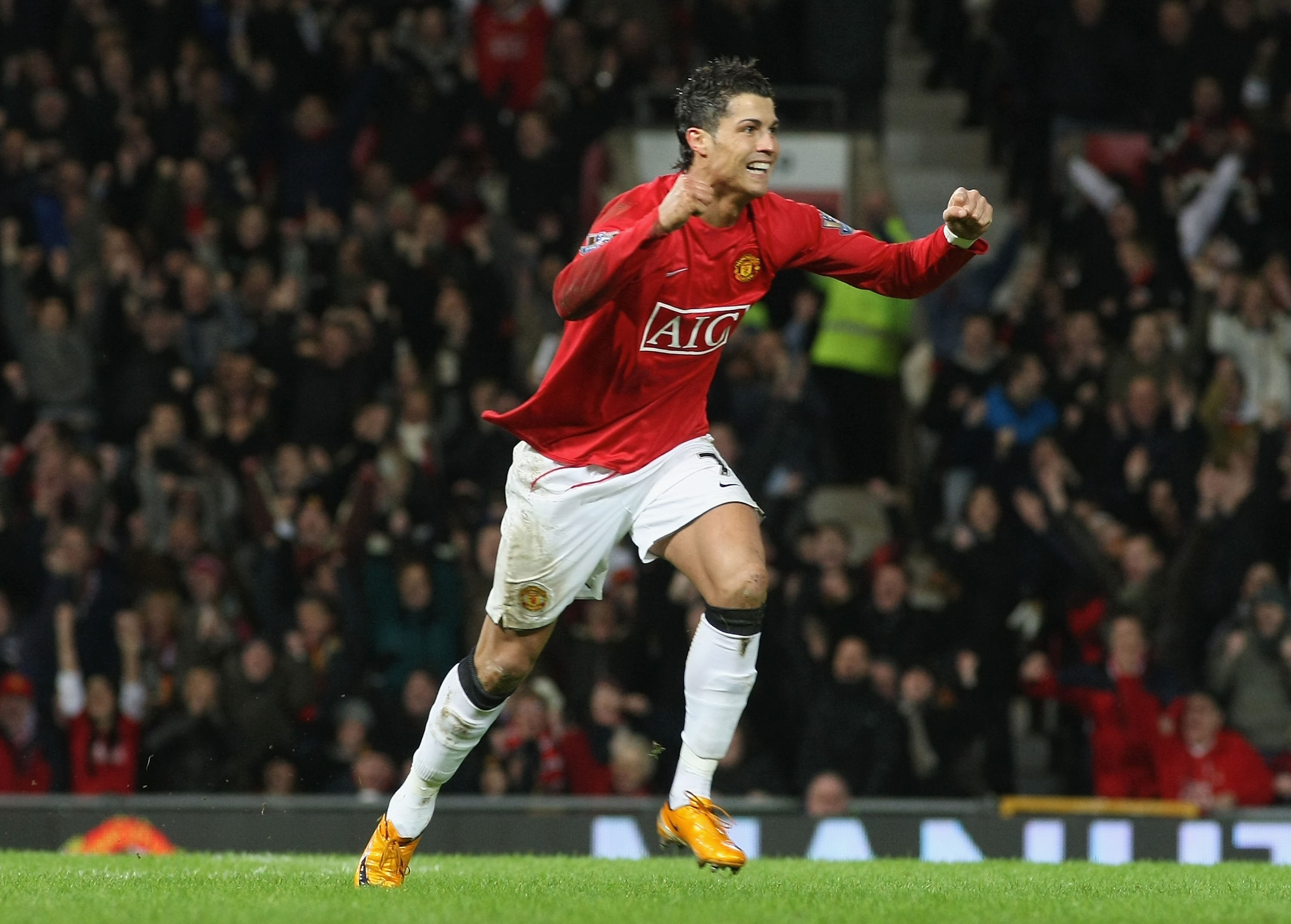The Rumbelows Sprint Challenge: When English football's fastest footballers raced for £10k
In 1992, a group of TV execs came up with an idea as brilliant as it was simple: get players from all 92 league clubs to sprint for the right to call themselves the game’s fastest (and win a new telly)
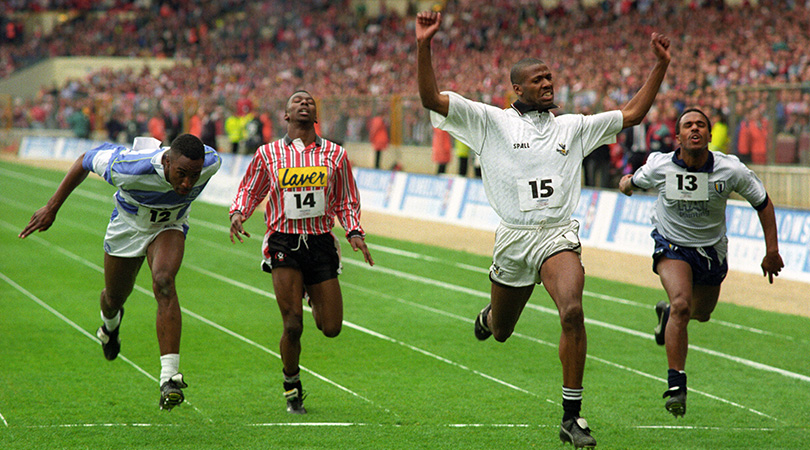
Like many of the greatest and wonderfully drunken nights, it was completely unplanned. Swansea City striker John Williams and his team-mate Jon Ford were staying at the Hilton in Watford and intent on having a quiet evening.
But then they’d discovered that there was a free bar...
“Jon was a big lad, he could put them away and loved a good beer, whereas I wasn't a drinker at all,” remembers Williams. “But we had some steak and chips, and because it was Jon’s birthday the following day I said: ‘Come on let’s celebrate with a couple of pints.’
“Of course, one became two and three became four. We had a bottle of champagne, and after that we got on the spirits. I was paralytic.
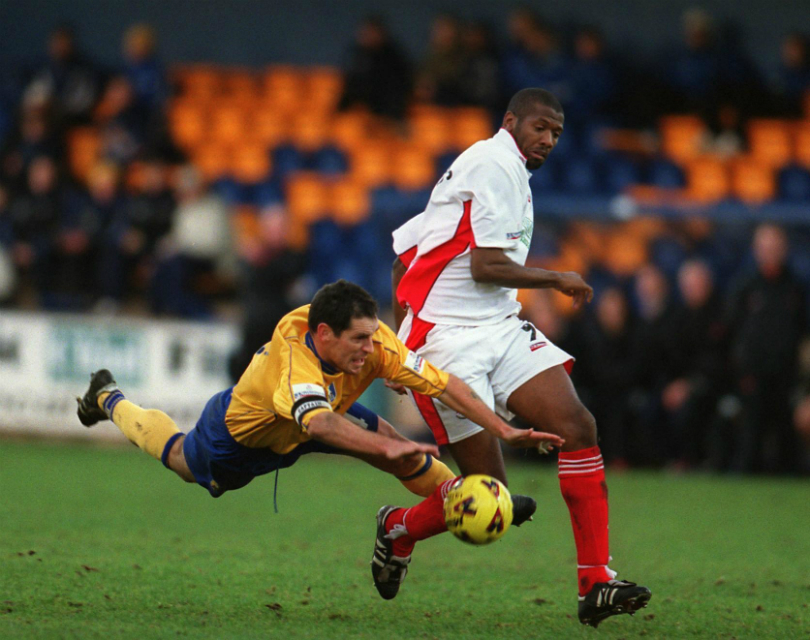
"I think I ended up back in my room at 3am. I threw up, and the next thing I knew I was waking up in a bath. Jon was spraying me in the face with cold water, there was a shockwave and it drove me crazy. I started to attack him. Then I realised what was going on – he was shouting at me: ‘We’re late! We’re late!’”
Williams, a hungover shambles, had an appointment at Wembley Stadium. It was the day of the 1992 League Cup Final and, later that afternoon, he was to race for the title of Britain’s fastest footballer.
“You’re representing us because you can catch pigeons”
Get FourFourTwo Newsletter
The best features, fun and footballing quizzes, straight to your inbox every week.
Many things have changed since the birth of the Premier League in 1992, and many of those changes have been for the better. But one feature those who lived through the 1970s, ’80s and early-'90s era of the English game miss are the entertaining sideshows that went alongside the national pastime. Kevin Keegan in 1976, for example: he might have been playing for champions Liverpool, but he was still allowed to film Superstars – a barmy TV mini-Olympics, during which he endured a serious bike crash.
It's hard to imagine, say, Dele Alli, being permitted to engage in a cycle-off against Mo Farah and Tom Daley purely for prime time telly giggles.
Likewise, the amount of cultural nonsense that accompanied our delirious excitement about both the League and FA Cup final has all but disappeared now. Recall the ’78 cup final special episode of Noel Edmonds’ Swap Shop, in which Keith Chegwin was sent to Highbury to follow Arsenal’s pre-match preparations.
Picture cup final Tarby And Friends, where Scouser Jimmy Tarbuck propped up a bar and then wisecracked about Kenny Dalglish with Kenny Lynch. And consider the footage which brought us Bruce Forsyth’s: “I’ve always supported the Lilywhites – do they still call them the Lilywhites?” back in 1991.
Then there were the daft TV specials: cup final Punchlines (a Lennie Bennett quiz vehicle packed with Z-list celebs) and cup final Snooker (which included Gary Lineker defeating Mark Lawrenson before the all-Mersey 1986 FA Cup showpiece). It sometimes got pretty dubious: the ITV report in which Dickie Davies was reduced to tears while Freddie Starr examined the Wembley nets dressed as a Nazi was probably the nadir.
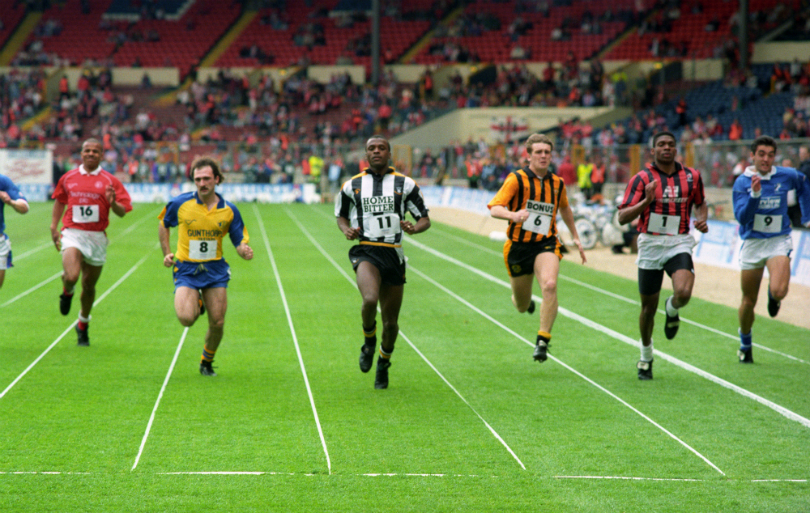
The Rumbelows Sprint Challenge slotted neatly into this pattern: dreamt up by the producers of Saint and Greavsie – the all-conquering ITV weekly round-up show hosted by Ian St John and Jimmy Greaves – and funded by electrical retailers and League Cup sponsors, Rumbelows. The idea appealed to fans, who, just as now, loved to argue about who the quickest player in the game was.
“All the players saw the running challenge on Saint and Greavsie and word went out to the clubs,” says Kevin Bartlett, the Notts County striker tipped for the title. “Speed had always been a big part of my game, so I knew I had a decent chance.”
Each of the 92 Football League clubs was invited to put forward a candidate. Most teams obliged, but many were fringe players and youngsters, with several regional heats. These were shown on Saint and Greavsie. Winners would then go through to the semi-finals and final held before kick-off at the Rumbelows showpiece.
“Neil Warnock told us we had to agree among ourselves who’d be sent from us, so we chose to have a race after training,” Bartlett tells FFT. “It was haphazard. I went up against Dave Regis, Chris Short and a couple of the other quick players at County, and I won easily. All the lads fancied me to win it. The event was in conjunction with Ladbrokes, so John McCririck was going through the odds alongside a bookie. People at Notts started putting money on me.”
The rules were pretty simple: the sprint was held over 100 yards of Wembley turf, and competitors had to be wearing football boots and their full club kit, minus shin pads. Both standing and traditional crouched athletic starts were permitted.
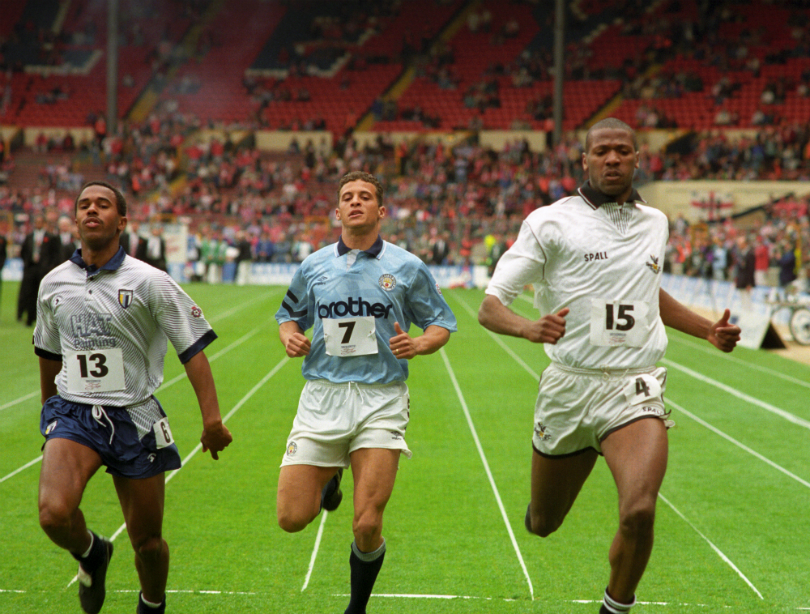
“I thought it was a bit weird,” Williams tells FFT. “Footballers are usually fast over 10 or 15 yards – they’re not built for 100. But I was 6ft 3in and quite ungainly. I took a while to get going, but once I did, I was fast. My boss, Frank Burrows, pulled me over and said he was putting me in the challenge. He said, ‘You’re representing Swansea because you can catch pigeons.’ I thought, ‘OK’. It sounded like fun.
“Our regional heats were in Portsmouth. I took the train and met a few of the other players on the way, like John Beresford, who was at Bristol Rovers. We got to Fratton Park and did the race. I smashed it in both heats and had a great time, won £500 and a TV as a prize.
“I thought that was it, then somebody told me I’d made it to the final. I hadn’t really been paying attention to Saint and Greavsie so I didn’t know about that, but they told me that I could take a friend to Wembley and I thought of Jon Ford because April 12 was also his birthday. I reckoned it’d be a decent day.”
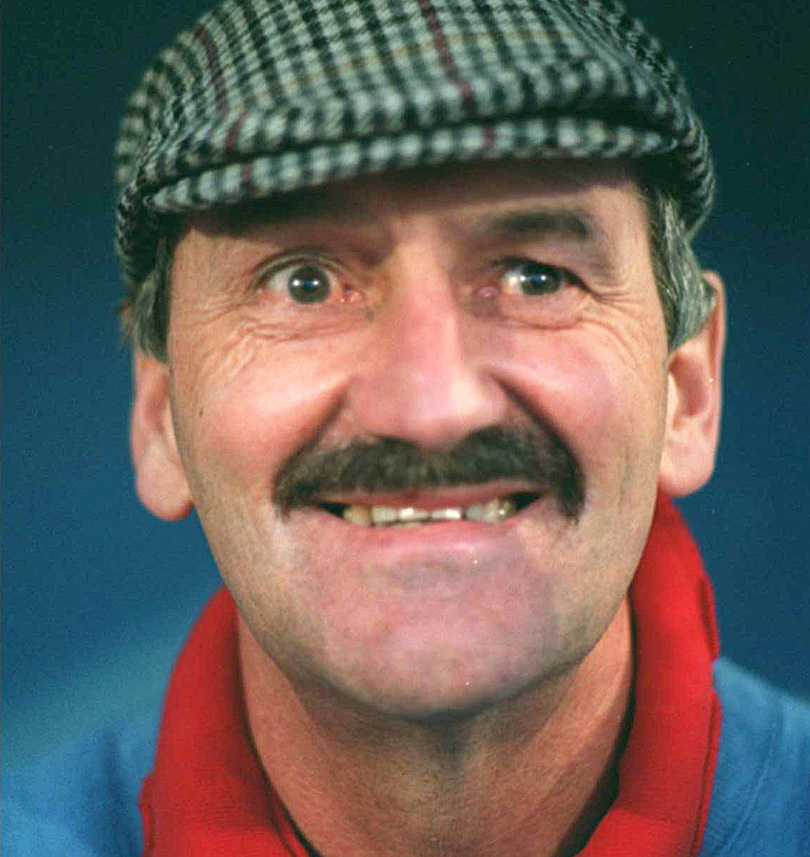
“Get him drunk and you’ll have me to answer to’”
Winning wasn’t on Williams’ mind, however, despite his nickname – ‘The Flying Postman’ – a reference to a previous job for the Royal Mail.
“I was always a good athlete and I remember one manager telling me I had legs like a pedigree horse. All of the Swansea lads thought I had a shot, but I started watching the heats after taking part and when I saw Kevin Bartlett compete I thought, ‘wow’. He was winning races by 15 yards. He was like Ben Johnson, without the drugs! He was small and powerful, and his times were superb.”
But Bartlett had a problem. “In the weeks leading up to the final I’d been injured. I’d only got fit the week before the race and was a sub for County on the Saturday, the day before the final. I wasn’t 100 per cent but I was feeling confident.
“I suppose the heats had made me the bookies’ favourite. I'd done well at Molineux. It was odd, racing other footballers, but you could tell everybody was taking it pretty seriously. Rumbelows had put up a £10,000 prize so people wanted to win that, and everyone fancied going to Wembley to be crowned the fastest player. Back in Nottingham, they were sure I would win.”
Williams was in an even less fit state, however. The 3am booze-up and kip in the bath aside, he’d played a full 90 minutes the day before. “We’d had a match at Darlington,” he says. “We’d drawn 1-1 and I scored a header. Me and Jon Ford got off the bus at Birmingham to get the train to our hotel.
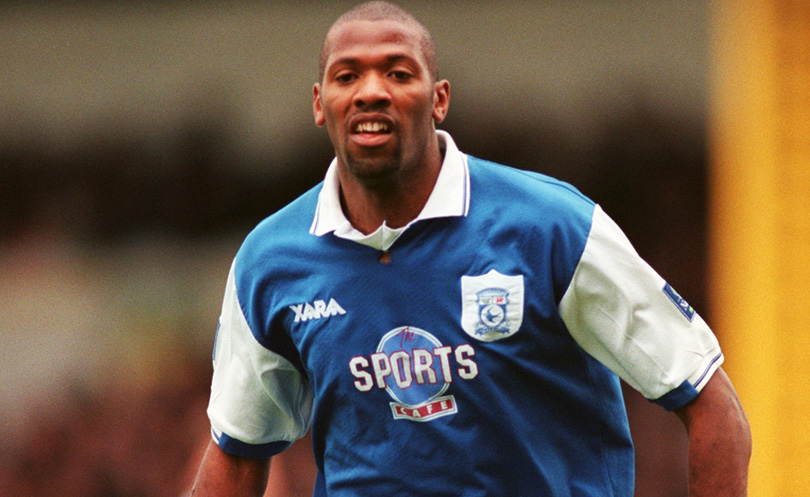
"Frank Burrows said to Jon, ‘If you get him drunk, then you’ll have me to answer to...’
What happened next...“Jon replied, ‘Oh no gaffer, I won’t do that!’ But it happened. On the start line I felt relaxed – there were bigger favourites than me. I was a dark horse. It was all pretty mad. There were 75,000 people there and the Manchester United and Nottingham Forest supporters were enjoying it. Poor old Keith Curle, who played for Man City, virtually needed an armed guard – he was getting hell from the United lot.”
On TV, eccentric ITV odds expert McCririck stands pitchside – replete with trademark sideburns and deerstalker – jabbering betting slang with Ladbrokes’ representative Paul Austin. “Saint and Greavsie have got a monkey at 3-1 on Bartlett,” he says. “He looks a good favourite,” adds Austin. “He only ran the heat to qualify... looked to be coasting.”
Middle distance runner Steve Cram is then consulted, claiming that for footballers, “this is a stamina race. It’s going to be hard for them. In the last 30 metres, heads start to rock.”
Commentator Alan Parry admits he had already lost cash on Curle, who’d been eliminated in the semis. “The clever money’s on Bartlett,” he says, adding the threat comes from ‘The Flying Postman’ Williams. “There were never any complaints about late deliveries on his round.”
With speedy Forest defender Des Walker not taking part due to the fact that he was playing in the final, the rest of the field was made up by Michael Gilkes (Reading), Tony Witter (QPR), Leigh Jenkinson (Hull), Adrian Littlejohn (Sheffield United), Efan Ekoku (Bournemouth) and Paul Fleming (Mansfield). A huge Wembley roar greeted the players.
On the pitch, distractions were everywhere. “I used a standing start, because I thought if I got down on the ground, I would never get up again,” laughs Williams. “But as we lined up, I could see a young lad keeping the ball up on the sidelines. He wasn’t even looking as he did it, perfectly. He was looking right at me. I thought, ‘he’s quality’ and then I realised that it was Ryan Giggs. I was so distracted by it that I actually missed the starting gun go off.”
Bartlett was also a slow starter. “That’s what did it for me,” he says. “I didn’t get away quickly enough, then I had too much to make up.”
With 50 yards gone, Williams glides through the field like Usain Bolt in his pomp to win comfortably. “I thought, ‘If I haven’t caught them by halfway, there’s no hope’,” he says. “But a lot of the field started to wane and I was getting stronger. I thought, ‘I’ve got a chance here’, and kicked on – it was a brilliant feeling."
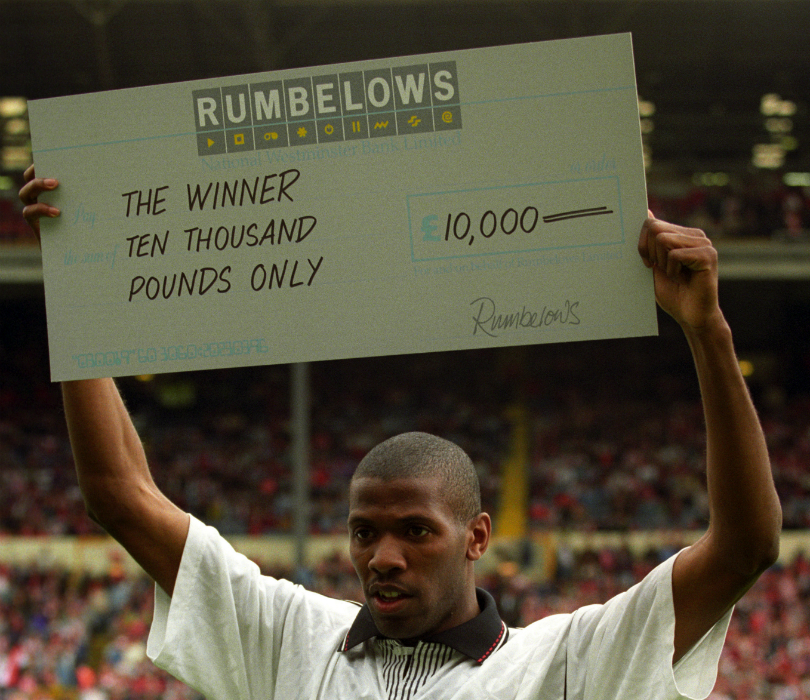
Commentator Parry enjoys the moment. “Williams of Swansea! You might well thank a superior power for that one!” he gushes as the line is crossed in 11.49 seconds. “He scored yesterday and collects a cool £10,000. He can now call himself the fastest footballer in the league.”
Analyst Cram approves: “He’s a powerful boy and wouldn’t disgrace many sprinting tracks around the world. Williams might want to look at the Olympic trials later in the year.”
Bartlett came second, deeply disappointed despite winning £2,000. Gilkes took third, and £1,000.
“I still get slaughtered over it back in Nottingham”
Ten grand was no joke for a first-year professional playing in the lower leagues. “It was really useful,” recalls Williams. “I couldn’t believe it.
"I put a deposit down on a house and bought a car, a Peugeot 205 GTI 1.9. It’s nothing compared to the Bentleys today, but I was just a lad from inner-city Birmingham. And loads of the lads had backed me to win at 16-1, so they were pretty happy!”
The opposite was the case for the beaten Bartlett. “I got slaughtered back in Nottingham,” he says. “I’m still in touch with lots of the squad and, even to this day, they give me stick for losing their money. And County fans bring it up, too.” He has one consolation. “Because I ran 11.40 in the heats, I still consider myself the fastest ever footballer.”
Williams isn’t having it. “It’s not what you do in the heats, it’s what you do in the final,” he laughs. With Rumbelows entering receivership later that year, and Saint and Greavsie also taken off the air after ITV lost their football coverage to Sky, the title would remain his forever.
“We each got given travel expenses and a TV from Rumbelows,” he says. “It’s probably why they went bust! I thought I wasn’t going to get my money, but thankfully I did. It’s fun that I can still say I’m the fastest player, but a race like that wouldn’t happen now. Players are like rock stars and detached from the fans. It’s such a big industry.”
Best of all, though, Williams had learned a valuable life lesson.
“It was the last time I ever got drunk.”
Then read...
ACTION REPLAY When Manchester City were rubbish: how the 1998/99 season changed a football club’s destiny
While you're here, why not take advantage of our brilliant new subscribers' offer? Get 5 copies of the world's greatest football magazine for just £5 – the game's greatest stories and finest journalism direct to your door for less than the cost of a London pint. Cheers!
Nick Moore is a freelance journalist based on the Isle of Skye, Scotland. He wrote his first FourFourTwo feature in 2001 about Gerard Houllier's cup-treble-winning Liverpool side, and has continued to ink his witty words for the mag ever since. Nick has produced FFT's 'Ask A Silly Question' interview for 16 years, once getting Peter Crouch to confess that he dreams about being a dwarf.
